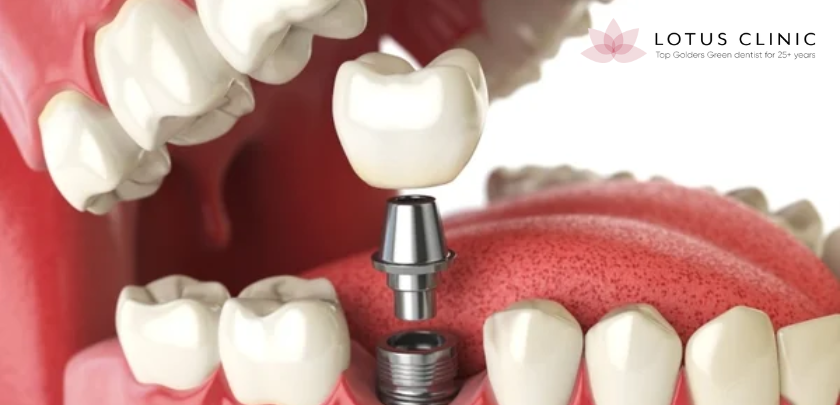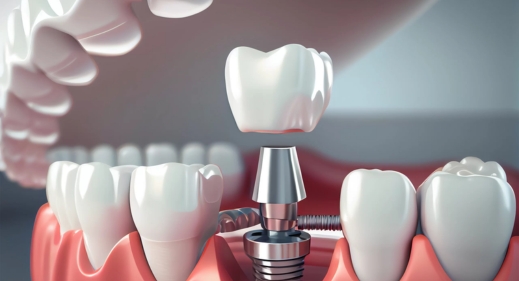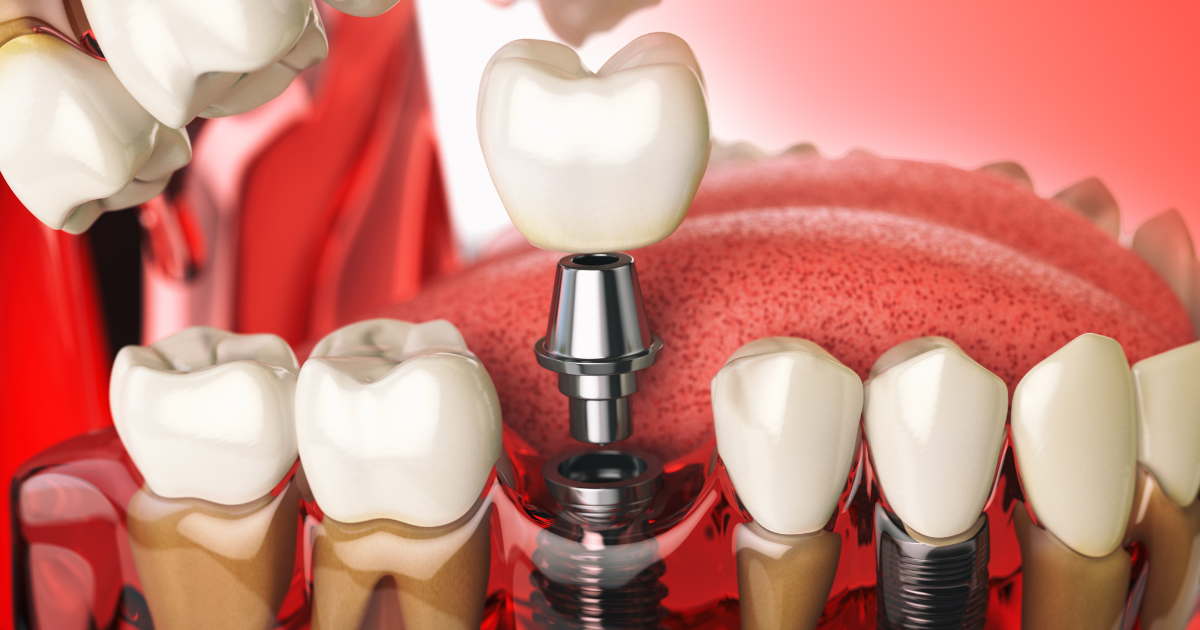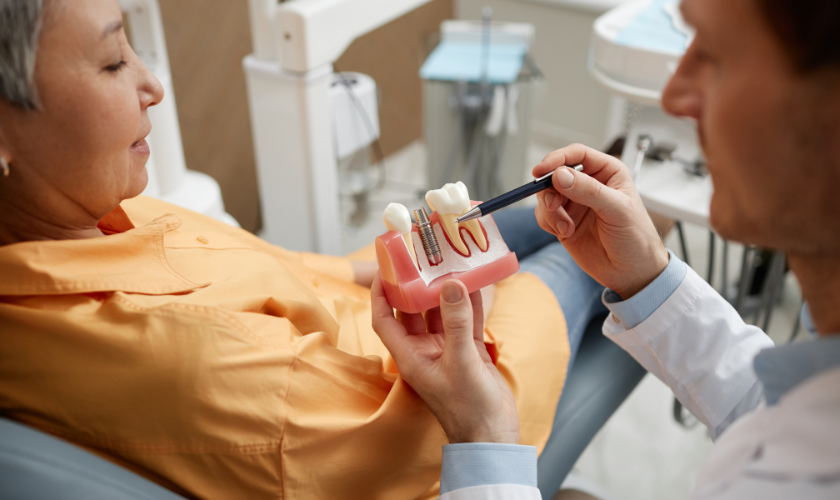943 Finchley Rd, London NW11 7PE
Addressing Common Misconceptions About Dental Implants

Missing teeth can have a significant impact on your life. This affects not only your appearance but also your ability to eat and speak clearly. While dentures and bridges have traditionally been used to address this issue, dental implants have emerged as a popular and long-lasting alternative. However, a lot of misinformation surrounds dental implants, leading to hesitation and missed opportunities for individuals who could benefit from this treatment. Let’s debunk some of the most common misconceptions about dental implants and shed light on the reality of this innovative procedure.
Understanding the Importance of Dental Implants
Enhanced Functionality: Implants mimic the natural root of a tooth, fusing with the jawbone to create a stable foundation. This allows you to chew confidently and enjoy a wider variety of foods without discomfort or slipping dentures.
Preserved Jawbone Health: When a tooth is missing, the jawbone beneath begins to deteriorate. Implants, acting as artificial tooth roots, stimulate the bone and prevent this shrinkage, preserving facial structure and supporting neighbouring teeth.
Improved Aesthetics: Implants are custom-designed to seamlessly blend with your existing teeth, restoring a natural and beautiful smile. This can significantly boost your self-esteem and confidence in social interactions.
Durability and Longevity: Made from biocompatible titanium, dental implants are incredibly strong and can last a lifetime with proper care. This eliminates the need for repeated replacements, offering a cost-effective and long-term solution.
Improved Speech: Missing teeth can impact your pronunciation and speech clarity. Implants restore the natural structure of your mouth, enabling you to speak confidently and clearly.
Common Myths & Misconceptions About Dental Implants
Myth #1: Dental implants are painful
While any surgical procedure carries some level of discomfort, the perception of dental implants being excruciatingly painful is not true. Modern advancements in anaesthesia and pain management techniques ensure a comfortable experience during the procedure. Your dentist will discuss various options to minimise discomfort. This includes local anaesthesia, sedation, or even general anaesthesia in specific cases.
Myth #2: Dental implants are only for the rich and famous
While the initial cost of dental implants may seem higher compared to other tooth replacement options, it’s crucial to consider the long-term perspective. Unlike dentures or bridges, which might require repairs or replacements over time, dental implants are designed to last a lifetime with proper care. Additionally, many dental practices offer flexible payment plans and financing options to make treatment more accessible.
Myth #3: Anyone can get dental implants
While dental implants offer a remarkable solution for many, they are not suitable for everyone. Certain health conditions, such as uncontrolled diabetes or severe gum disease, might need to be addressed before proceeding with implant placement. Additionally, individuals with insufficient jawbone density might require additional procedures to create a strong foundation for the implant. A thorough consultation with a dentist will involve a comprehensive examination. This includes X-rays and medical history assessments to determine your candidacy for dental implants.
Myth #4: Dental implants look fake and unnatural
Modern dental implants are crafted from biocompatible materials and are designed to integrate with your surrounding teeth seamlessly. The crown, which is the visible part of the implant, is custom-made to match the size, shape, and colour of your natural teeth. As a result, dental implants offer an incredibly natural and aesthetically pleasing appearance, boosting your confidence and smile.
Myth #5: Dental implants require special care
While dental implants are known for their durability, they still require proper care to maintain their longevity and functionality. Brushing and flossing twice daily, along with regular dental check-ups and cleanings, are crucial for maintaining good oral hygiene. Also, it helps to prevent peri-implantitis, an infection that can affect the implant and surrounding bone. Your dentist will provide specific instructions on caring for your dental implants to ensure their optimal performance.
Dental implants offer a reliable and long-term solution for replacing missing teeth and improving your oral health and overall well-being. By addressing common misconceptions and seeking professional guidance from a qualified dentist, you can make an informed decision about whether dental implants are the right option for you. Remember, seeking guidance from a dental professional can clarify any further questions you might have and help you explore all your available options for achieving a healthy and confident smile.







